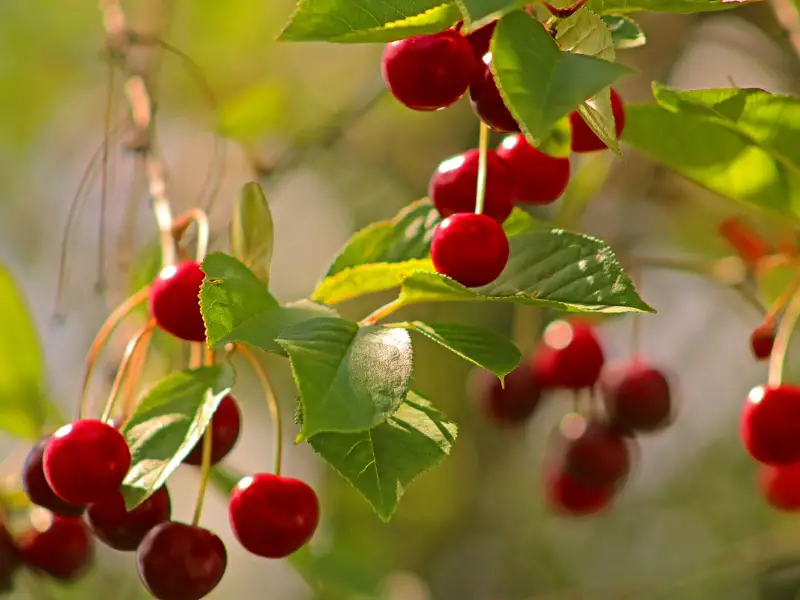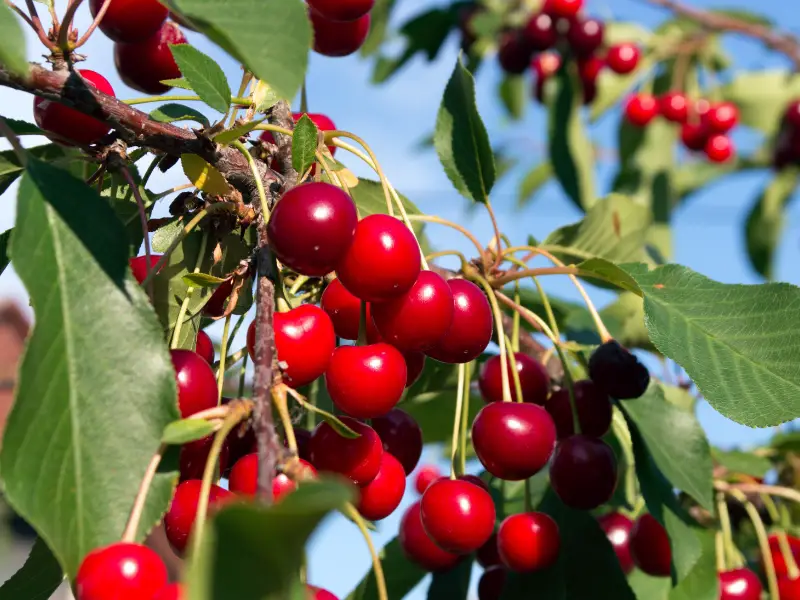Rabbits are adorable and beloved pets that require a healthy and balanced diet to maintain their well-being. While hay and fresh vegetables are the staples of their diet, pet owners often wonder if they can feed their furry friends with fruits such as cherries. Cherries are a popular fruit that is enjoyed by many people, but can rabbits eat cherries?
The answer is yes, rabbits can eat cherries, but only in moderation. Cherries are a good source of vitamins and minerals that are essential for a rabbit’s health. However, they are also high in sugar and should only be given as an occasional treat. Overfeeding cherries to rabbits can lead to digestive problems and obesity, which can be harmful to their health. Therefore, it is important to limit the amount of cherries that rabbits consume and to provide them with a balanced diet that meets their nutritional needs.
Can rabbits eat fresh cherries?
Rabbits love to munch on fresh fruits and vegetables, but not all of them are safe for them to eat. Cherries are a popular fruit that many people enjoy, but can rabbits eat fresh cherries?
The answer is yes but in moderation. Cherries are safe for rabbits to eat, but they should only be given as an occasional treat. The reason for this is that cherries are high in sugar, which can cause digestive problems for rabbits if they eat too much.
It’s important to note that rabbits should never be given cherry pits or stems. These parts of the cherry contain cyanide, which is toxic to rabbits and can lead to serious health problems or even death. Always make sure to remove the pits and stems before giving cherries to your rabbit.
If you decide to give your rabbit fresh cherries, it’s best to start with a small amount and monitor their reaction. Some rabbits may have a sensitivity to cherries or other fruits, so it’s important to introduce them slowly.
In addition to being a tasty treat, cherries also contain antioxidants and other beneficial nutrients that can support your rabbit’s overall health. Just make sure to limit their intake and always remove the pits and stems before feeding.
Overall, fresh cherries can be a safe and enjoyable treat for rabbits when given in moderation. As with any new food, it’s important to introduce them slowly and monitor your rabbit’s reaction.
Benefits of Feeding Cherries to Rabbits

Cherries are a delicious fruit that can be enjoyed by humans and animals alike. When it comes to rabbits, cherries can provide a range of benefits that can help keep them healthy and happy.
One of the primary benefits of feeding cherries to rabbits is that they are a great source of vitamins and minerals. Cherries are packed with vitamin C, which is essential for the health of rabbits as they cannot produce this vitamin on their own. Additionally, cherries are a good source of potassium, fiber, and antioxidants, which can help support the immune system and promote overall health.
Another benefit of feeding cherries to rabbits is that they can help keep their digestive system healthy. The fiber in cherries can aid in digestion and prevent constipation, which is a common issue for rabbits. Additionally, the natural sugars in cherries can provide a quick source of energy for rabbits, which can be especially beneficial for younger or more active rabbits.
It is important to note that while cherries can provide many benefits to rabbits, they should only be fed in moderation. Cherries are high in sugar, which can lead to weight gain and other health issues if consumed in excess. Additionally, the pits and stems of cherries can be toxic to rabbits and should always be removed before feeding.
Overall, feeding cherries to rabbits can be a healthy and enjoyable treat when given in moderation. As with any new food, it is important to introduce cherries slowly and monitor your rabbit for any signs of digestive upset.
Risks of Feeding Too Many Cherries to Rabbits
While cherries are a tasty and nutritious treat for rabbits, feeding too many cherries to your furry friend can cause several health issues. Here are some of the risks of feeding too many cherries to rabbits:
Digestive Problems
Cherries are high in sugar and fiber, which can cause digestive problems in rabbits if they consume too many cherries. Overconsumption of cherries can lead to diarrhea, bloating, and gas, which can be uncomfortable and painful for rabbits.
Obesity
Feeding too many cherries to rabbits can also lead to obesity. Cherries are high in calories and sugar, and rabbits that consume too many cherries can quickly gain weight. Obesity can cause several health issues in rabbits, including heart disease, arthritis, and diabetes.
Cyanide Poisoning
Cherry pits contain cyanide, which is toxic to rabbits if consumed in large quantities. If a rabbit eats too many cherry pits, it can lead to cyanide poisoning, which can cause seizures, respiratory failure, and even death.
To avoid these health risks, rabbits should only be given cherries in moderation as an occasional treat. It is recommended to feed rabbits no more than one or two cherries per week and to remove the pits before feeding them to your furry friend.
How Many Cherries Can I Give My Rabbit?
When it comes to feeding your rabbit cherries, it’s important to keep in mind that cherries should only be given to them in moderation. While cherries are not toxic to rabbits, they are high in sugar and can cause digestive issues if given in excess.
A good rule of thumb is to limit the amount of cherries you give your rabbit to one or two small pieces per week. This will ensure that your rabbit gets a tasty treat without overloading their digestive system with too much sugar.
It’s also important to note that you should never give your rabbit the pit or stem of a cherry. These parts of the fruit can be a choking hazard or cause digestive issues if ingested.
If you’re unsure about how much cherry to give your rabbit, it’s always a good idea to consult with your veterinarian. They can provide you with more specific guidance based on your rabbit’s individual needs and health history.
In summary, while cherries can be a tasty treat for your rabbit, it’s important to give them in moderation and avoid giving them the pit or stem. Always consult with your veterinarian if you have any questions or concerns about feeding your rabbit cherries.
Can Baby Rabbits Eat Cherries?
Baby rabbits have delicate digestive systems that require special attention. As such, it’s important to consider what they eat, especially when it comes to fruits like cherries.
While cherries are a nutritious fruit, they should not be fed to baby rabbits. Cherries contain high levels of sugar and can cause digestive issues in young rabbits, leading to diarrhea and other health problems.
In addition, the pits of cherries contain cyanide, which can be toxic to rabbits. Accidentally ingesting a cherry pit can be fatal, especially for a young rabbit with a weaker immune system.
It’s important to note that baby rabbits should not be given any fruits until they are at least 12 weeks old. At this point, they can start to be introduced to fruits in small quantities as part of a balanced diet.
When introducing fruits to baby rabbits, it’s important to start with small amounts and gradually increase the quantity over time. Fruits should never make up the majority of a rabbit’s diet and should always be given in moderation.
Overall, while cherries may be a tasty treat for humans, they should not be given to baby rabbits. It’s important to prioritize the health and well-being of these delicate animals by providing them with a balanced diet that meets their specific nutritional needs.
Related Articles:

